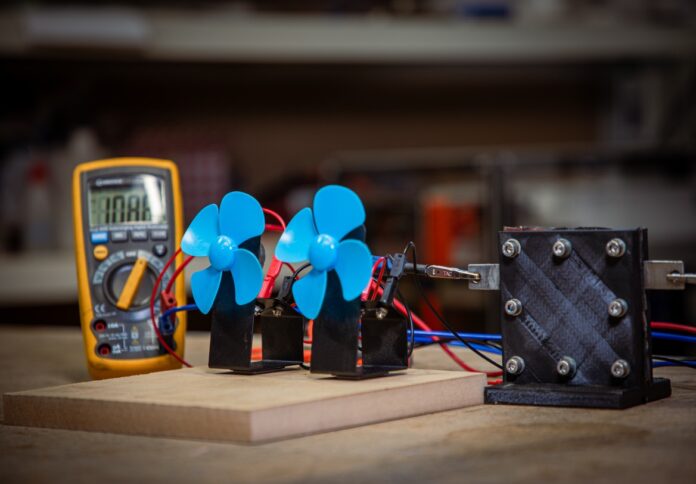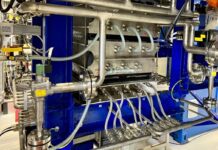
In the future, homes, cars, and other gadgets might be powered by an experimental ‘proton battery’ developed by RMIT researchers without the environmental challenges associated with lithium-ion batteries’ end-of-life.
The battery, which has been patented by the university, employs a carbon electrode to store hydrogen separated from water and subsequently functions as a hydrogen fuel cell to generate energy, RMIT revealed in a news release.
Currently, the RMIT team is starting a two-year research cooperation with Eldor Corporation, an Italian-based worldwide automotive component supplier, to develop and prototype this technology.
RMIT and Eldor have been working on the same technology for the past five years.
Professor John Andrews, the lead researcher, stated that recent design enhancements to their proton battery made it competitive as a carbon-neutral alternative to lithium-ion batteries.
“As the world shifts to intermittent renewable energy to achieve net-zero greenhouse emissions, additional storage options that are efficient, cheap, safe and have secure supply chains will be in high demand,” said Andrews, from RMIT’s School of Engineering.
According to the professor, a proton battery also does not pose any environmental problems at the end of its useful life because all of its parts and materials may be repaired, recycled, or used again.
During the experiment, the team successfully used the proton battery to power multiple tiny fans and light for several minutes.
According to Andrews, their most recent battery’s capacity to store 2.2 weight per cent of hydrogen in its carbon electrode was more than twice that of their 2018 prototype and nearly three times that of existing electrochemical hydrogen storage devices.
“Our battery has an energy-per-unit mass already comparable with commercially-available lithium-ion batteries, while being much safer and better for the planet in terms of taking less resources out of the ground,” he said.
Researchers also noted that the RMIT proton battery splits water molecules while charging to produce protons, which bond to a carbon electrode.
Andrews stated that the proton battery avoids the energy-inefficient processes of high-pressure hydrogen gas storage and subsequent fuel cell splitting of these gas molecules.
“Our proton battery has much lower losses than conventional hydrogen systems, making it directly comparable to lithium-ion batteries in terms of energy efficiency,” he remarked.
According to the professor, the RMIT team is looking forward to further developing this technology in Melbourne and Italy with Eldor Corporation to come up with a prototype battery that has the storage capacity required for a variety of household and commercial applications.
The Journal of Power Sources has published the findings and analysis of the proton battery research conducted by the RMIT team.



















